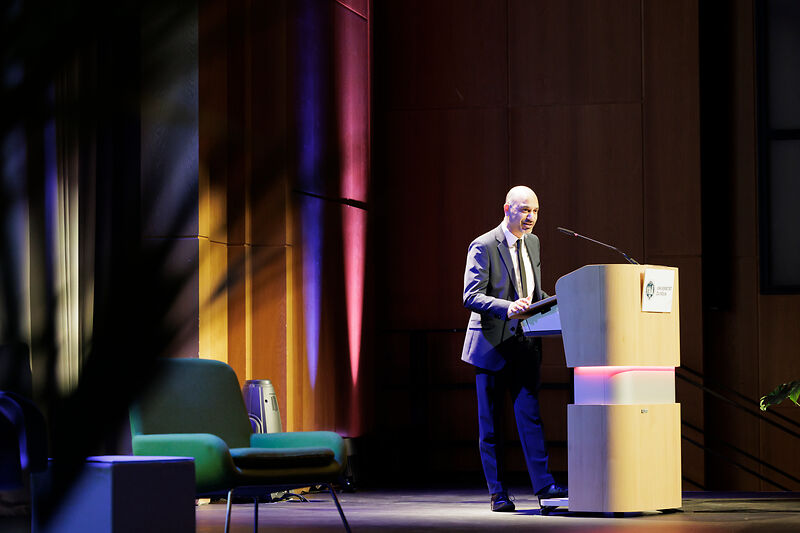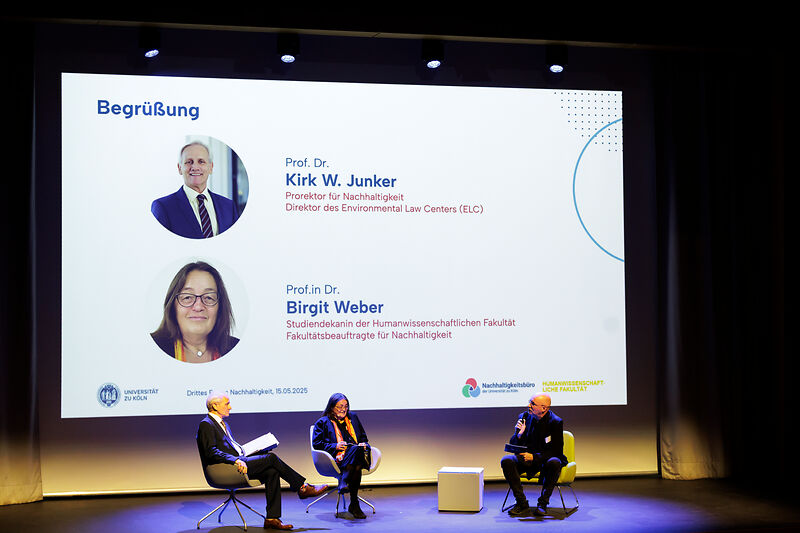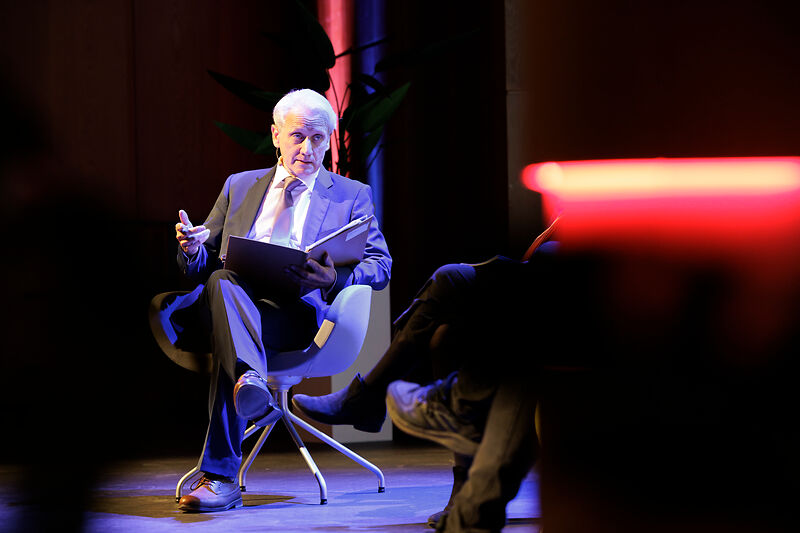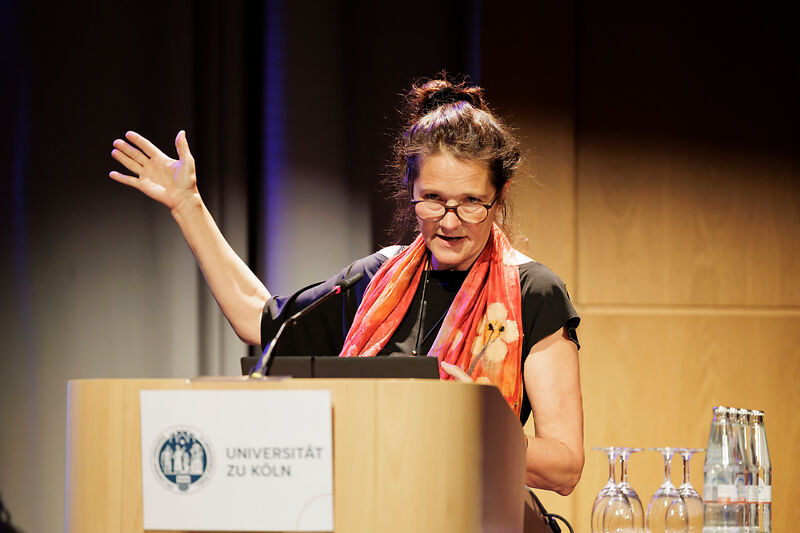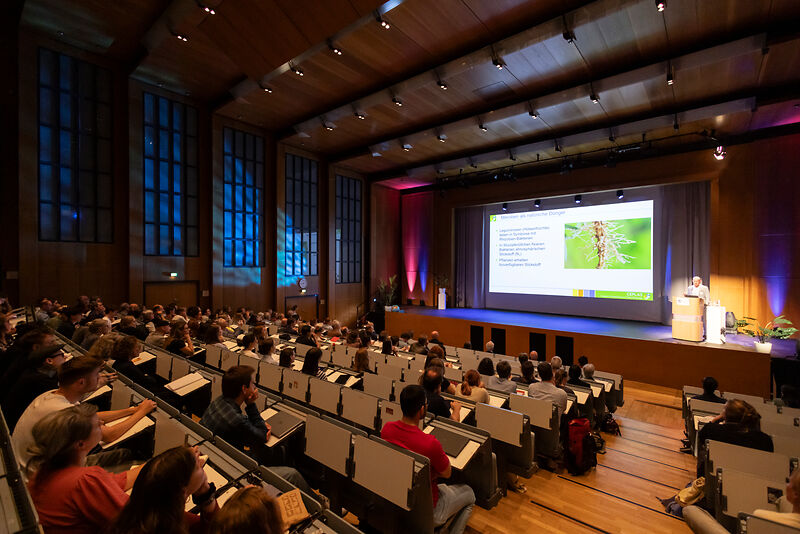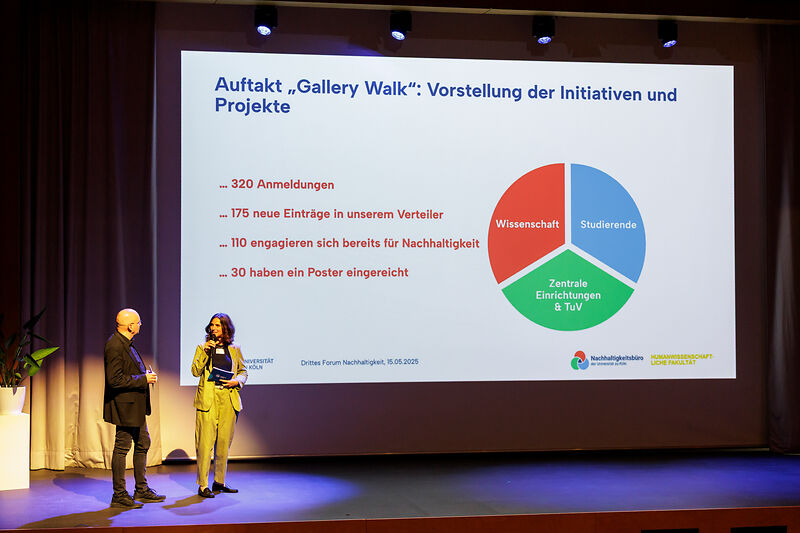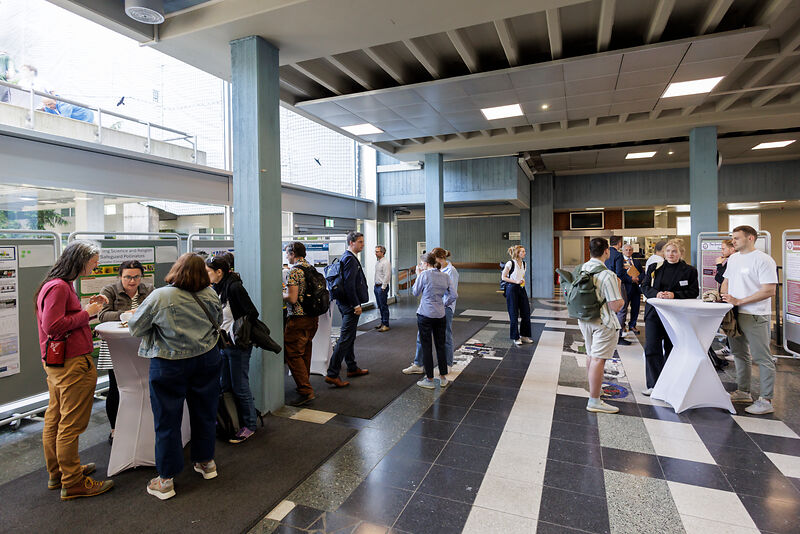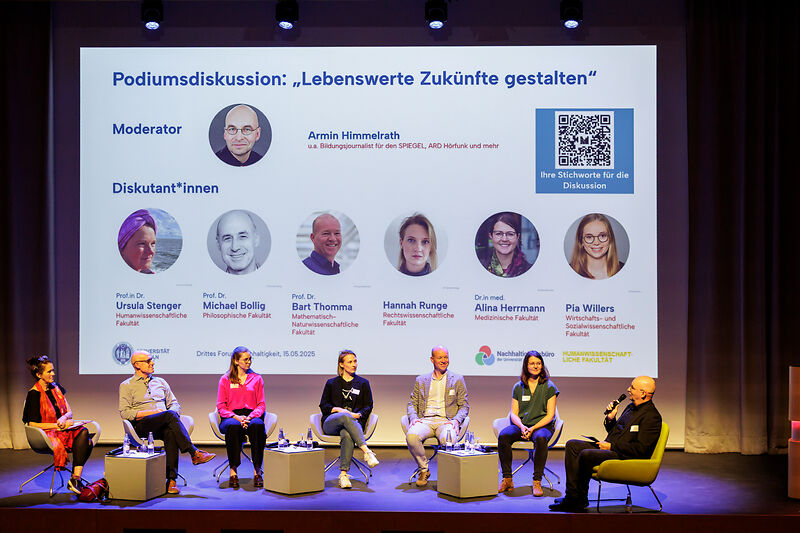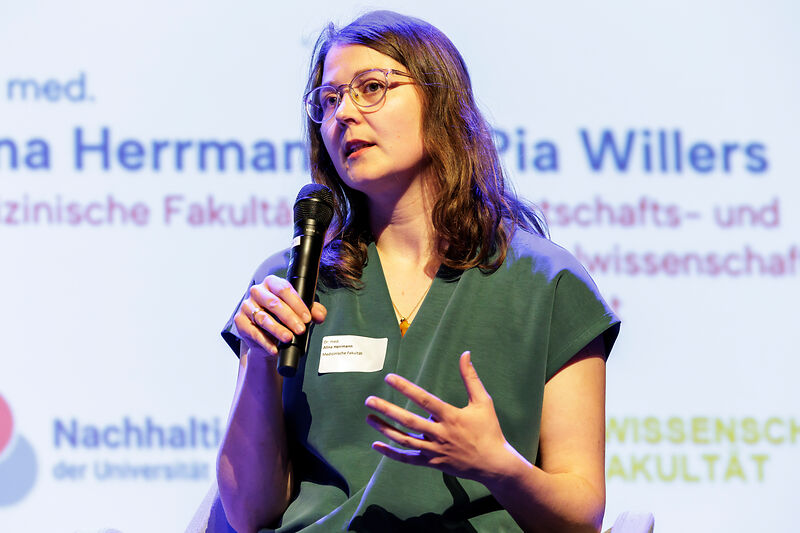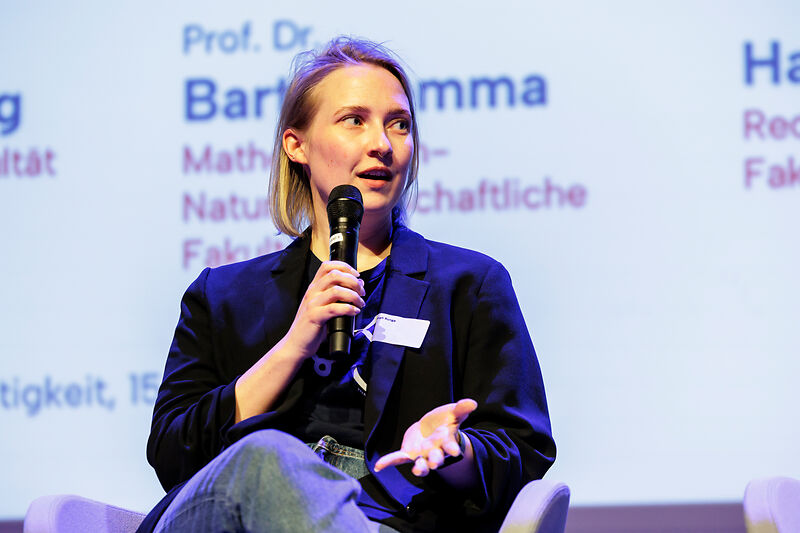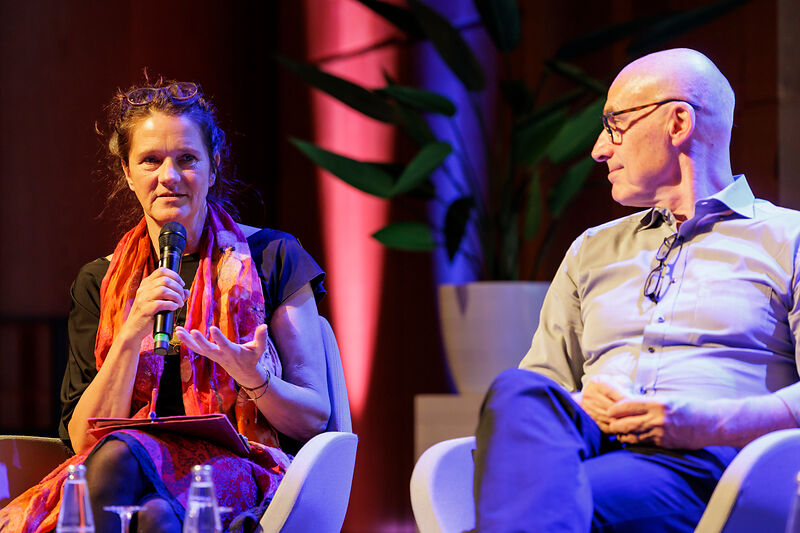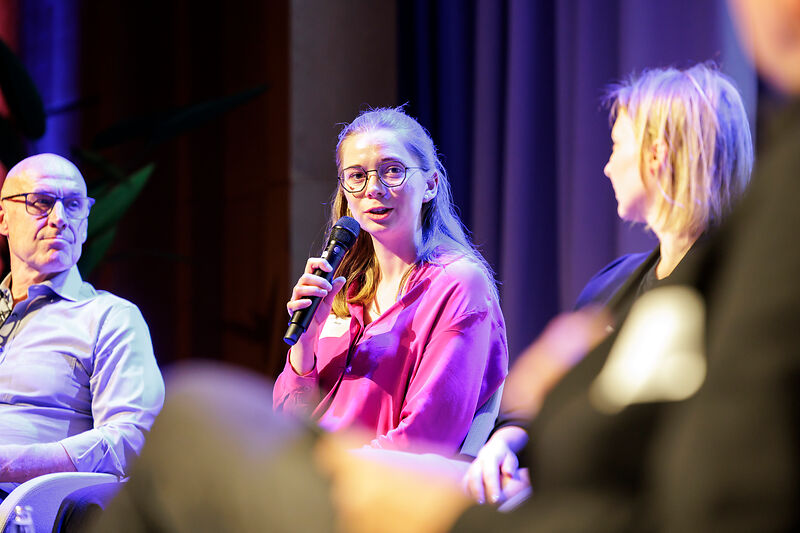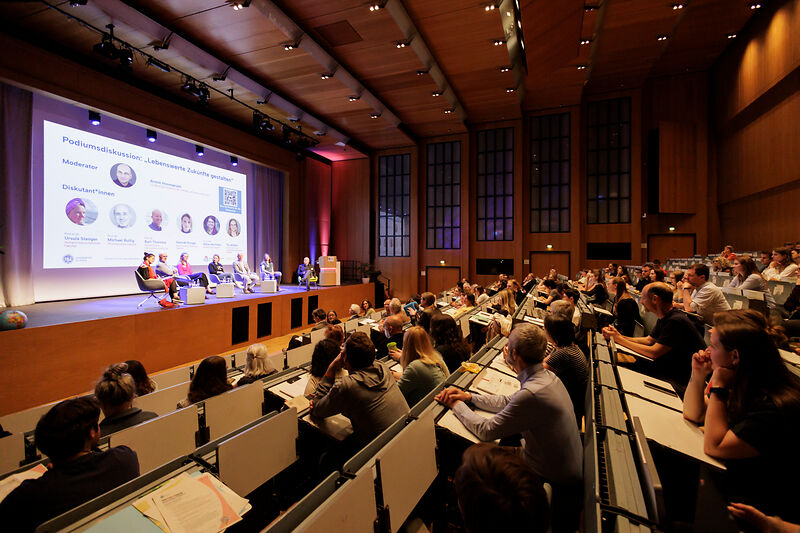Shaping sustainability - together, interdisciplinary, future-orientated
With fresh impetus, open discussions and a wide range of commitment, the third Sustainability Forum showed just how firmly anchored the topic is at the University of Cologne. The day brought together people from all areas of the university to discuss and develop ideas and visions for a future worth living.
The third Sustainability Forum was organised under the motto ‘Shaping a future worth living’. At the invitation of the Vice-Rectorate for Sustainability, the Sustainability Office and the Faculty of Human Sciences as co-host, numerous students, researchers and employees from all parts of the university came together once again this year and used the forum as a central dialogue format for an interdisciplinary exchange on the topic of sustainability.
“Our willingness to actively shape the necessary change is demonstrated by the wide range of projects and measures in the field of sustainability at the university. To this end, we are taking our share of planetary responsibility - and promoting a shared culture of sustainability,” emphasized Prof. Dr. Joybrato Mukherjee, Rector of the University of Cologne, right at the beginning of his welcome address.
“Over the next five years, we want to and must implement numerous measures”
Prof. Dr. Kirk W. Junker, Vice-Rector for Sustainability, then underlined the importance of cooperation in the field of sustainability and referred to milestones already achieved: “We have had a sustainability strategy since 2023 and a corresponding implementation plan since last year. Students, faculties and the entire university are actively involved. Over the next five years, we want and need to implement numerous measures.”
The event kicked off with three scientific keynote speeches. These were not only thought-provoking, but also highlighted specific perspectives. Prof. Dr Ursula Stenger addressed the responsibility of educational science in times of socio-ecological crisis and presented how education can initiate transformative processes. Prof. Dr Michael Bollig took the audience on a journey to the Global South and illustrated how nature conservation projects there combine ecological, social and economic developments. Prof Dr Bart Thomma provided insights into the world of microbes and plants and demonstrated how bioscientific research provides innovative answers to ecological challenges.
A subsequent “Gallery Walk” provided a variety of insights into the university's projects, initiatives and activities in the field of sustainability. The wide range of poster contributions reflected the great commitment of the university community and invited people to exchange ideas.
Strategies for a sustainable future through collaboration and understanding
At the heart of the event was an interdisciplinary panel discussion on the topic of “Shaping futures worth living”, moderated by Armin Himmelrath, education journalist for SPIEGEL, ARD radio and more. Representatives from all faculties discussed challenges and potentials from different perspectives - legal, medical, economic, pedagogical, scientific and humanities. It became clear that viable strategies for a sustainable future can only be developed through interdisciplinary cooperation and mutual understanding.
The event concluded with four parallel workshops in which the participants discussed specific questions: What can the university community actively contribute to a future worth living? How can climate fears be dealt with constructively? How can gamification teach sustainability skills in a playful way? And how can a strategy be put into practice?
The day ended with open discussions and networking. At the centre was the realisation that sustainability is not an abstract concept, but a living, collaborative process - supported by a committed university community that takes responsibility and actively shapes the future.
The fourth Sustainability Forum will be jointly organized next year by the Vice-Rectorate for Sustainability, the Sustainability Office and the Faculty of Arts and Humanities as co-hosts.
Records
Opening & Welcome
Armin Himmelrath, Prof. Dr. Joybrato Mukherjee, Prof. Dr. Kirk W. Junker & Prof.in Dr. Birigt Weber
Lecture: "Shaping the future: On the role and responsibility of (educational) science in socio-ecological crises"
Prof. Dr. Ursula Stenger
Lecture: "Nature Conservation in the Global South: A Way to Solve Problems of Global Environmental Change, Poverty and Participation at the Same Time?"
Prof. Dr. Michael Bollig
Lecture: "Today's challenges, tomorrow's solutions: how plants and microbes can shape the future"
Prof. Dr. Bart Thomma

